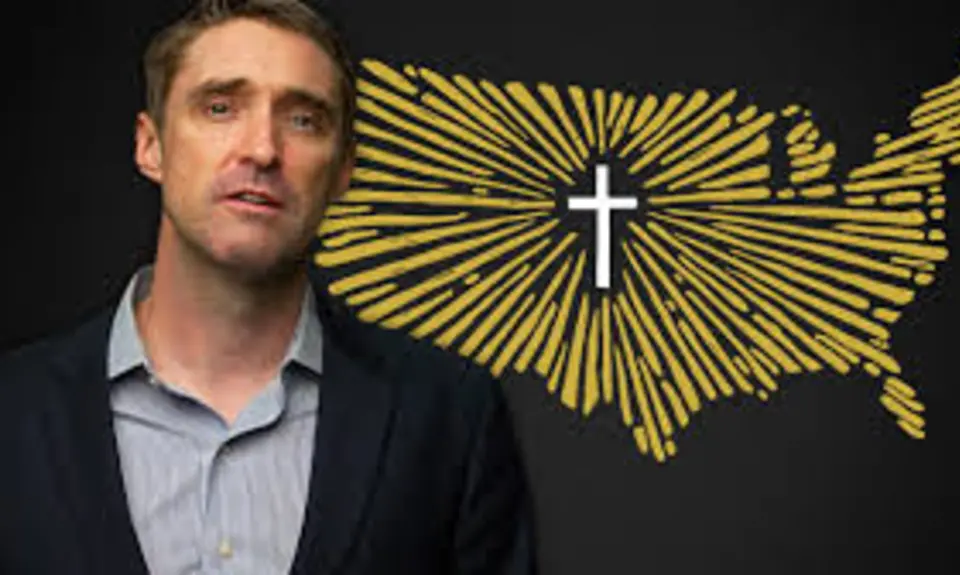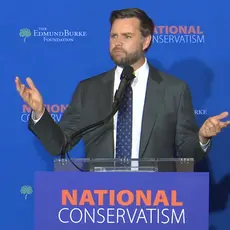Earlier this year, journalist Kiera Butler wrote an in-depth piece for Mother Jones titled "To Understand JD Vance, You Need to Meet the 'TheoBros.'"
The "TheoBros," Butler explained, are a group of "extremely online young Christian men [who] want to end the 19th Amendment, restore public flogging, and make America white again" and who see in Vance "the perfect tribune to spread their gospel of patriarchal Christian nationalism."
With no meetings, website, or an explicit statement of faith that unifies their beliefs, the TheoBros are not an official organization. They identify with 16th-century French theologian John Calvin, who spawned a rigid and deterministic form of Protestantism. Julie Ingersoll, a University of North Florida religion scholar, traces the current movement back to R.J. Rushdoony, an Armenian American philosopher who popularized the idea of Christian nationalism (and homeschooling) in the early 1970s.
Out of Rushdoony’s movement emerged two camps: the charismatic Christians, now known as the New Apostolic Reformation, and the reformed Protestants, which include the TheoBros. They share the goal of creating a Christian nation, says Ingersoll, but differ on a key point of theology: Adherents of the New Apostolic Reformation believe that God is still speaking directly to people through pastors who have declared themselves apostles and prophets. The TheoBros, meanwhile, believe that God said all he needed to say in the Bible.
Many TheoBros are also proponents of postmillennialism, the idea that believers can hasten Jesus’ return by fighting against the satanic forces of liberal excess. TheoBro Aaron Renn, an Accenture consultant turned Christian pundit, has described our current era as a “negative world,” where Christians are persecuted for their beliefs. Andrew Isker, another Bro, calls it “trashworld.”
Like all self-respecting millennials, the TheoBros have little tolerance for boomers, with the exception of their patriarch, Douglas Wilson, a 71-year-old pastor in Moscow, Idaho.
Among the "TheoBros" profiled in Butler's piece were Stephen Wolfe, author of "The Case for Christian Nationalism," and radical Christian nationalist pastor Joel Webbon. On Tuesday, Wolfe appeared on Webbon's election night livestream, where he personally verified the central thesis of Butler's article.
"Our separation from Vance is not that far," Wolfe said. "I can't say that he listens to us or you or reads me or anything like that, but I think within the network of friends in the kind of new right network, I think he's connected to that."
"I think the left is right, that they're correct that there is a right-wing movement and it is influencing people, including people of power, especially younger people," Wolfe continued. "Another thing about Trump is he opened up the possibility that we can get over the kind of George Bush mentality of conservatism. He got over that and now younger people who are not stuck in the ways of the rhetoric of television and what they learned from the 80s, now they can actually adopt ideas that again are older and that kind of predate Reagan, that are American."
"Now they're possible," he added. "Now you can affirm them and in the next 10, 20 years we're going to see them even more as these guys who are wisely maybe keeping their head down eventually pop up and do great things."
In September, Right Wing Watch reported on Vance’s close associations with a range of anti-democratic right-wing activists.






